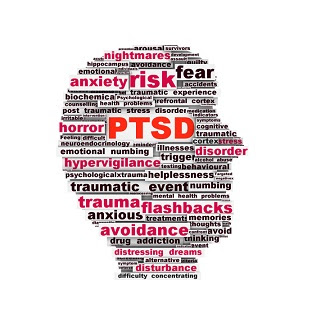For starters, you probably don't remember Betty Ford, our First Lady in the 70s, unless you're an American. She was the founder of the Betty Ford Centre in Rancho Mirage, California, a luxurious complex for addiction and rehabilitation which handles mostly depression, addiction to drugs, and alcoholism. She was afflicted with all three, maybe because Gerald Ford was the president and clumsy or maybe because she had a mastectomy or maybe because she was stressed, but who knows. The Betty Ford Centre is her legacy and still very much the go-to place for troubled celebrities. For a 45-day stay, the counselor who answered my phone call said the cost is up to $25,000. Who has that kind of money? Celebrities.
Anyway, the first medical director at The Betty Ford Centre was Dr. James West, and family's questions abounded him. Here is one of the questions he answered:
"The people in the study and/or their caregivers or relatives were asked about drinking habits. Fully 25% were heavy drinkers. This was defined as having about three or more drinks per day, or about 1.8 ounces per day of “pure” alcohol.
"The heavy drinkers were about 60 when they had stroke. By contrast, the people who were not heavy drinkers were about 74 when they had a stroke. The heavy drinkers were also more likely to be smokers and did show some evidence of irregularities in their blood that would make them more likely to have a bleeding stroke."
Deepak L. Bhatt, MD, MPH, a cardiologist at Brigham and Women's Hospital in Boston and an associate professor at Harvard Medical School, concurs.
“The study does add to our knowledge that excessive drinking is bad for our health in a variety of ways, including increased risk of bleeding into the brain.”
Bhatt says heavy drinkers may be more likely to have high blood pressure,
which is a major risk factor for stroke. “If someone enjoys drinking, I
don’t discourage them, but I will caution them even more so after this
study to make sure that the amount is considered moderate.”
"We do know that one glass of red wine a day, on average, lowers heart attack and stroke risk, and that is still true," says Dr. Patrick Lyden, the chair of the department of neurology at of Cedars-Sinai Medical Center in Los Angeles. “If you don’t drink, don’t start because you think it will protect your heart, and if you do drink, keep it moderate. My rule of thumb is one glass of wine a night, and that is the same as a glass of beer or one mixed drink,” he says.
“This doesn’t mean you can save them up and have seven drinks on a Saturday.” (Even I know that!)
"We do know that one glass of red wine a day, on average, lowers heart attack and stroke risk, and that is still true," says Dr. Patrick Lyden, the chair of the department of neurology at of Cedars-Sinai Medical Center in Los Angeles. “If you don’t drink, don’t start because you think it will protect your heart, and if you do drink, keep it moderate. My rule of thumb is one glass of wine a night, and that is the same as a glass of beer or one mixed drink,” he says.
“This doesn’t mean you can save them up and have seven drinks on a Saturday.” (Even I know that!)
"Certain people should avoid alcohol, including those taking blood thinners," says Leyden. (I know that, too).
Another voice heard from, as recently as this year, Although alcohol in moderate amounts can protect you from having a stroke, there is no doubt that excessive intake can increase your risk of having a stroke. Chronic excessive alcohol intake can precipitate all types of stroke, and most notably sharply raises the risk of hemorrhagic stroke.
This is, in many cases, the result of harmful effects of alcohol on the
liver, as this organ makes proteins which are necessary to prevent
spontaneous bleeding."
Yet more. A study found that drinking more than two alcoholic beverages a day when you reach middle-age raises the risk of a stroke in early old age more than do traditional risk factors, such as high blood pressure and diabetes.
The study published online January 29 in Stroke, with author Pavla Kadlecová, MSc, St. Anne's Hospital, Brno, Czech Republic, found that individuals "who consumed more than two drinks a day during middle age had double the risk for stroke between the ages of 60 and 75 years compared with those who consumed an average of half an alcoholic drink per day."
And finally, there comes the Copenhagen City Heart Study, with Dr. Thomas Truelsen et al, which found that "there may be differences in the effect of beer, wine, and spirits due to properties other than ethanol, a topic that has gained only little attention in stroke research. The differences in the effects of beer, wine, and spirits on the risk of stroke suggest that compounds in the wine in addition to ethanol are responsible for the protective effect on risk of stroke." Grapes, perchance? The study didn't say.
So my conclusions? If you don't drink alcohol, don't start. If you take blood thinners, really stop. If you do imbibe, watch the amount, especially if you're middle-aged or older.










